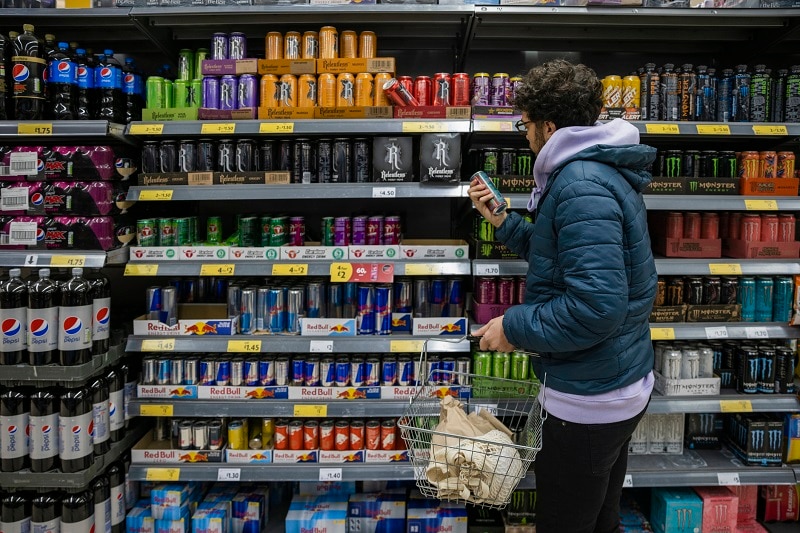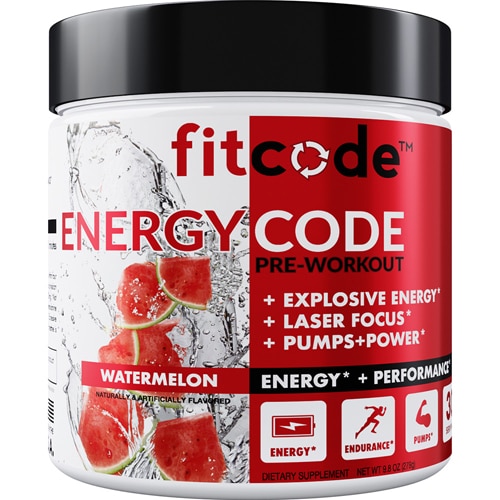[vc_row][vc_column][vc_column_text]When it comes to energy drinks, “healthy” is in the eyes — and taste buds — of consumers, researchers and health care professionals.
There’s no broad definition for “healthy” in the context of caffeinated energy drinks, which are especially popular among teens and young adults. So, whether healthy energy drinks really exist depends on who’s using the word “healthy.”
In general, though, it’s safe to say that some energy drinks are
healthier than others. But it’s up for debate as to whether any energy drink is truly
healthy.

Are Energy Drinks Healthy?
What are drawbacks of energy drinks?
An energy drink is a beverage, typically in a can, that often contains a generous amount of caffeine, added sugars and other additives, along with legal stimulants such as
guarana,
taurine and
L-carnitine,
according to the federal Centers for Disease Control and Prevention (CDC).
“On their own, these ingredients [like guarana and taurine] may have some health benefits — like supporting brain and heart health, improved energy and focus and antioxidant and anti-inflammatory benefits — but when you combine them with the additional caffeine and added sugars in an energy drink, it can be a recipe for disaster,” registered dietitian Amber Sommer is quoted as saying in a
Cleveland Clinic blog post.
On the positive side, energy drinks boost alertness, attention and
energy. Furthermore, the Mayo Clinic points out, some energy drinks contain beneficial vitamins, minerals and
amino acids.
But the same drinks can contribute to higher blood pressure, heart rates and breathing rates. In fact, the CDC says, the stimulants in these drinks can harm the nervous system. In addition, frequent consumption of sugar-filled energy drinks might heighten the risk of obesity and type 2 diabetes.
Possible side effects of energy drinks include:
Due to the potential harm, the American Academy of Pediatrics and the
American Academy of Family Physicians recommend that kids steer clear of energy drinks. In fact, the family physicians’ group is pushing for a federal ban on the sale of energy drinks to people under 18.
Are there healthy energy drinks?
While energy drinks don’t fall into the same health category as, say, low-fat milk, fruit juice or green tea, they “aren’t all that bad” when consumed in moderation, according to the Mayo Clinic. Still, as Ohio State University’s Wexner Medical Center
notes, many energy drinks that may claim to be healthy can still present health risks.
To drink up the healthier aspects of energy drinks, experts suggest consuming ones with little to no sugar and with a relatively low amount of caffeine.
“Sugar-free energy drinks are purported to be healthier, but not enough research exists showing that they are truly healthy,”
says the Franciscan Missionaries of Our Lady Health System.
Be aware that some “healthy” energy drinks still contain added sugar in the form of organic cane sugar or honey instead of glucose or high fructose corn syrup, Wexner says. Even without added sugar, some energy drinks contain artificial sweeteners, stevia, sugar alcohols and monk fruit extract, all of which can trigger harmful side effects in some people, the hospital says.
According to the
National Center for Complementary and Integrative Health, a 16-ounce energy drink may contain 54 to 62 grams of added sugar. That exceeds the maximum amount of added sugar recommended for an entire day.
What are the pros of energy drinks?
As you’d expect, the American Beverage Association, a trade group whose members include makers of energy drinks,
defends these beverages.
The trade group focuses, for instance, on the caffeine comparison between energy drinks and coffee.
A typical 16-ounce energy drink contains 160 mg of caffeine, the beverage association says, while a typical 16-ounce cup of coffee purchased at a coffee shop contains 330 mg of caffeine.
The U.S. Food and Drug Administration (FDA) puts the caffeine range for a 16-ounce energy drink at 80 to 500 mg. By comparison, a typical 16-ounce cup of coffee contains 160 to 200 mg of caffeine, according to the FDA.
The FDA
recommends that a healthy adult consume no more than 400 mg of caffeine day.
The beverage association also emphasizes that:
- Energy drinks are available with and without sugar and calories. For those that contain sugar, the level is roughly equivalent to the amount in other sugar-sweetened beverages.
- Energy drink manufacturers recommend that children, pregnant people and breastfeeding people not consume energy drinks. The same goes for people who are sensitive to caffeine.
- The FDA regulates energy drinks and their ingredients.
- The association’s members go beyond federal labeling and marketing requirements by following the group’s guidelines.
“Energy drinks are functional beverages that can be enjoyed by a range of people,” says the association. “For some, they serve as a morning pick-me-up in place of coffee. For others, they are one more beverage choice that may be enjoyed for variety, caffeine or simply taste.”[/vc_column_text][/vc_column][/vc_row][vc_row][vc_column][vc_text_separator title="Featured Products" border_width="2"][vc_row_inner equal_height="yes" content_placement="middle" gap="35"][vc_column_inner width="1/3"][vc_single_image image="175754" img_size="full" alignment="center" onclick="custom_link" img_link_target="_blank" css=".vc_custom_1717790293452{padding-right: 7% !important;padding-left: 7% !important;}" link="https://www.vitacost.com/zevia-non-gmo-zero-calorie-energy-rtd-mango-ginger"][/vc_column_inner][vc_column_inner width="1/3"][vc_single_image image="175753" img_size="full" alignment="center" onclick="custom_link" img_link_target="_blank" css=".vc_custom_1717790306924{padding-right: 7% !important;padding-left: 7% !important;}" link="https://www.vitacost.com/verb-energy-caffeinated-energy-bar-chocolate-peanut-butter-cup"][/vc_column_inner][vc_column_inner width="1/3"][vc_single_image image="175752" img_size="full" alignment="center" onclick="custom_link" img_link_target="_blank" css=".vc_custom_1717790318665{padding-right: 7% !important;padding-left: 7% !important;}" link="https://www.vitacost.com/verb-energy-caffeinated-energy-bar-chocolate-peanut-butter-cup"][/vc_column_inner][/vc_row_inner][/vc_column][/vc_row]




